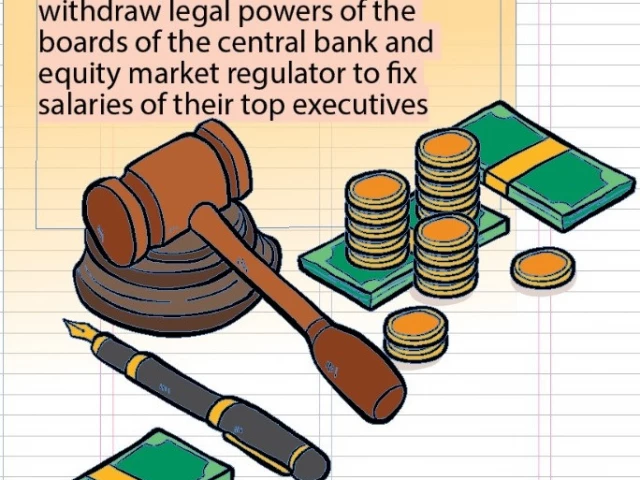Shocking Salary Hikes Prompt Action in Pakistan’s Financial Sector
Is it possible to shock lawmakers with salary hikes while a nation struggles economically? It seems so! Recently, a Senate committee in Pakistan expressed outrage over the exorbitant salaries awarded to top executives within key financial regulatory bodies. The catalyst? A staggering increase in the annual pay of the Securities and Exchange Commission of Pakistan (SECP) chairman, which ballooned to an eye-watering Rs41 million.
During a meeting, Senator Saleem Mandviwalla, head of the Senate Standing Committee on Finance, brought this unsettling issue to the forefront. Not only did the committee question these raises, but it also decided to amend both the State Bank of Pakistan (SBP) Act and the SECP Act, effectively removing the board’s authority to set executive salaries. This decisive action aims to ensure accountability and prevent further mismanagement of public funds.
Legal experts like Ministry of Law and Justice Secretary Raja Naeem Akbar backed this decision, pointing out the necessity of these changes. Only three out of 18 regulatory bodies currently possess the power to fix salaries on their own, with the remainder relying on the federal cabinet for approval. This raises a pivotal question: Why should a select few be granted such unfettered control?
During the discussions, the committee members scrutinized a troubling audit report revealing that the SECP had approved unauthorized pay hikes summing over Rs156 million annually without required finance ministry approval. While the SECP chairman defended the raises as market-driven, critics, including former law minister Senator Farooq H Naek, emphasized that such authority could easily be misused.
It’s astonishing how much money is involved when so many in the nation are facing economic hardships. The backlash reached a crescendo during a session of the Public Accounts Committee (PAC), where members voiced disbelief over how a financially struggling country can sustain such lavish compensation packages.
Even other regulators chimed in, such as the Competition Commission of Pakistan (CCP), where Chairman Dr. Kabir Sidhu pointed out the stark difference in compensation structures between agencies. He highlighted how the CCP can’t approve pay hikes unless granted government approval, contrasting drastically with the SECP’s decision-making process.
This recent uproar isn’t isolated to the SECP. The National Electric Power Regulatory Authority (Nepra) similarly faced criticism for significantly boosting its executive pay without the necessary cabinet sanction, further underlining a culture of financial recklessness at high levels.
As these events unfold, they provide a crucial reminder of the delicate balance between executive autonomy and public accountability. The need for regulations and checks is more important than ever to safeguard public funds.
If you want to stay informed about financial governance issues or engage with thought-provoking insights in this space, connect with us at Pro21st. Your perspective matters, and together, we can advocate for sensible financial practices!
At Pro21st, we believe in sharing updates that matter.
Stay connected for more real conversations, fresh insights, and 21st-century perspectives.





